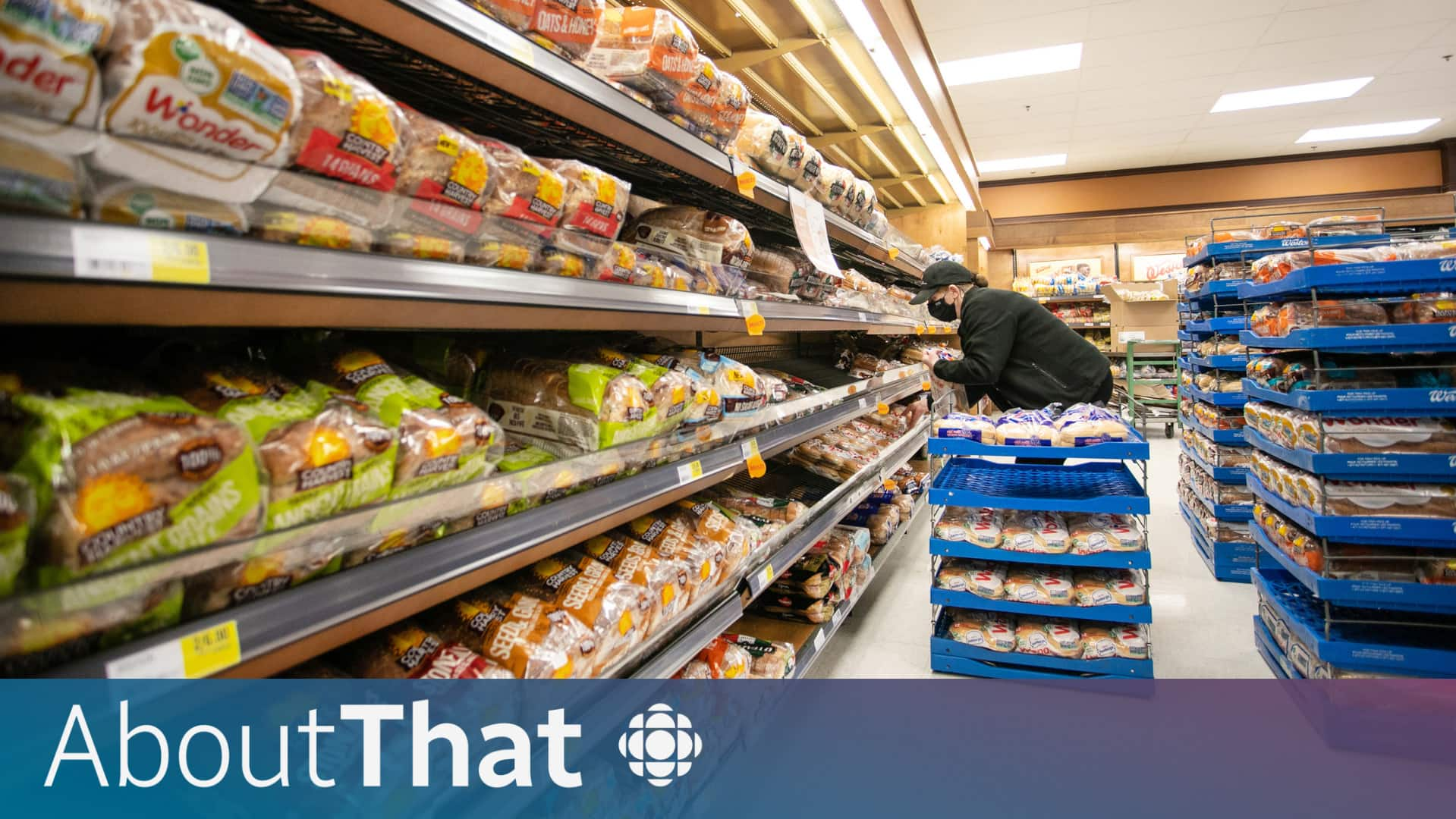Record fine paid by Canada Bread will go to federal government, not consumers

For anti-poverty activist Irene Breckon, it doesn't make sense: the federal government will pocket the entire $50-million fine Canada Bread must pay for price-fixing.
"I'm glad they're being penalized, but I really don't want the government to have that money," said Breckon, of Elliot Lake, Ont.
"That $50 million should be distributed to the people. Food prices are still high," she said, referring to the fact that over the past year, grocery prices have increased nine per cent. Bakery products have jumped 15 per cent.
Against the backdrop of high food inflation, major bread producer Canada Bread admitted last week it colluded to fix prices — a scheme that resulted in two wholesale hikes in 2007 and 2011.
Retailers factor in the wholesale price when determining how much to charge customers.

The Competition Bureau said the guilty plea is a significant development in its more than seven-year investigation into an alleged industry-wide bread price-fixing scheme.
"[It's a] very serious crime," said Commissioner of Competition Matthew Boswell in an interview on Friday. "Bread, as we all know, is a staple of the Canadian diet."
Nevertheless, the $50-million fine will go into the federal government's general revenue pool. Although that money will be used for government services, many Canadians want to know why it's not going directly to them — the folks who bought the overpriced bread.
"When a company does something wrong, they should give back to the people who they wronged," said shopper Chris Mrkonjic, outside a Toronto grocery store.
Right!!
—@scottGOLIONS
That is a great idea!
—@garlicsausagboy
But competition law expert Jennifer Quaid saidthe main purpose of criminal prosecutions is to punish bad actors, not dole out compensation.
"It's the exception rather than the rule," she said, adding that it would be difficult to identify the victims in a years-old bread price-fixing scheme.
"People don't keep their receipts," said Quaid, a law professor at the University of Ottawa. "I really don't think that it would be practical in this case at all to imagine that we would use the criminal law system for this."
Donate the money to charity?
CBC News heard from several people, including Alex Vanderzand, of Pickering, Ont., who suggested the $50 million could easily be donated to food banks. Some of them are struggling to keep up with rising demand fuelled by high food inflation.
"This money could help them stock their shelves and get it back out to people who really need it," said Vanderzand.

Breaking down the Canada Bread price-fixing scandal | About That
Canada Bread must pay a $50 million fine for being part of a scheme to fix the price of bread in Canada over 14 years. It's the highest fine the Competition Bureau has ever levied. Andrew Chang explains how the scheme worked, and why this may only be the beginning.
CBC News found several Competition Bureau deceptive marketing investigations where companies had to make donations to designated charities as part of their settlements.
In the latest case last year, coffee machine maker Keurig Canada agreed to pay a $3-million penalty and donate $800,000 to an environmental charity for making false or misleading claims that its single-use coffee pods can be recycled.
But the Competition Bureau said the donation requirements were part of civil cases where the agency was able to negotiate a settlement. Because price-fixing is a criminal offence, federal prosecutors negotiated Canada Bread's settlement. The Public Prosecution Service of Canada declined to comment on the agreement.
The Competition Bureau said that Canadians searching for compensation can pursue civil litigation. Currently, two class-action lawsuits, one in Ontario and one in Quebec are seeking cash for bread shoppers from Canada Bread and other companies allegedly involved in the price-fixing scandal.
Those cases could be tied up in the courts for years.
Why $50 million?
Along with protesting who gets the cash, some Canadians have questioned why Canada Bread's fine wasn't higher.
In a statement of agreed facts in the case, the company's annual sales for fresh bakery products totalled $945.9 million in 2007, and $1.087 billion in 2011. Those are the same years the price-fixing occurred.
"A $50-million fine is nothing to them," said Michelle Engert of Vancouver, who complained about the amount on Facebook shortly after the news broke.
"How can they get a little slap on the wrist?" she said in an interview. "Because this is a serious criminal offence."
Canada Bread's fine is actually the highest price-fixing penalty in Canadian legal history. In fact, Canada Bread received the maximum fine possible for four counts of price-fixing (totalling $70 million), but got a 30 per cent "leniency reduction" for the company's co-operation.
However, companies caught fixing prices now could face bigger penalties, because the federal government dropped the fine limit ($25 million per violation since 2010) from Canada's Competition Act on Friday.
"I think it's appropriate to have a lot more flexibility in the amount," said Quaid, the competition law expert. "It makes sense in the context of competition law where the amount of money involved can be very big."

The Competition Bureau is still investigating grocers Sobeys, Walmart and Giant Tiger, as well as wholesaler Maple Leaf Foods for allegedly taking part in the bread price-fixing scheme which ran from 2001 to 2015.
Each of those companies has said they have no knowledge of any wrongdoing.
Maple Leaf Foods was the majority owner of Canada Bread until it was sold to Mexican multinational Grupo Bimbo in 2014. Grupo Bimbo says it didn't learn about Canada Bread's involvement in the conspiracy until 2017.
Quaid said if any other companies are found guilty of participating in the price-fixing scheme, any fines they face will still be capped, because the violations would have occurred before the limit was lifted.
*****
Credit belongs to : www.cbc.ca
 MaharlikaNews | Canada Leading Online Filipino Newspaper Portal The No. 1 most engaged information website for Filipino – Canadian in Canada. MaharlikaNews.com received almost a quarter a million visitors in 2020.
MaharlikaNews | Canada Leading Online Filipino Newspaper Portal The No. 1 most engaged information website for Filipino – Canadian in Canada. MaharlikaNews.com received almost a quarter a million visitors in 2020.







